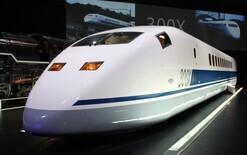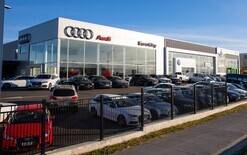ACCC report criticises car industry
The Federal Chamber of Automotive Industries, (FCAI) has expressed concern regarding the ACCC’s final report into the Australian new car retailing industry. The FCAI’s Chief Executive Tony Weber said that the report has revealed both a poor understanding of the industry and insufficient evidence to support the claims. This is especially disappointing for the FCAI as the document took around 18 months to develop. “While the FCAI and motor vehicle companies in Australia are still studying the detail of today’s report, at first blush it appears that the ACCC has taken 18 months to research and understand a complex industry, and failed to properly comprehend it,” Mr Weber said. “The ACCC’s report appears to be predicated on a very small number of complaints which it uses to tarnish Australia’s $17.5 billion retail motor industry. This is not only unfair, it is inaccurate." “To take one example, the ACCC has relied on 85 consumer complaints and 229 small business comments to support its position on mandating unfettered access to service and repair information,” Mr Weber noted. “By way of comparison, there are some 17 million motor vehicles on Australian roads today, which are predominantly repaired and serviced by the independent repair sector. So how does the ACCC hypothesize that the information isn’t readily available? “Technical information to service and repair cars is already widely available and the FCAI’s Voluntary Code ensures that car companies will continue to offer the information necessary to service and repair cars available to independent repair sector. However, it appears organisations are seeking ways in which they can leverage car manufacturers’ intellectual property for their own commercial gain by building and selling aftermarket devices.” Mr Weber noted that the retail new car industry also has been unfairly criticised by the ACCC, when in fact 1.178 million new motor vehicles were sold in Australia last year with overwhelming levels of customer satisfaction. “The reality is that as modern motor vehicles become more sophisticated, the independent repair sector needs to continue to adapt and change to ensure it remains relevant and up to date. Independent repairers shouldn’t be able to say they can repair all makes and models when clearly they can’t. Unfortunately, today’s report just smacks of the ACCC looking to support old and failing business models for independent repairers." “Car companies take safety, environmental and security information very seriously. Additionally, having security information in the public domain puts a vehicle at much greater risk of being stolen,” Mr Weber said. The ACCC’s recommendation on information sharing goes against the advice of the National Motor Vehicle Theft Reduction Council (NMVTRC), which wrote to the ACCC specifically on the matter, stating: "The current controls over the sharing of this information in Australia has helped deliver the nation low rates of electronic criminal manipulation by world standards and the NMVTRC’s view is that this approach should be maintained." “If the ACCC supports mandating the sharing of service and repair information above the already high level of information provided voluntarily by car companies, then the ACCC will own the responsibility for the misuse of that information,” Mr Weber said. According to figures obtained from the UK Royal Automobile Club (RAC), the number of stolen vehicles in the UK has risen by nearly 30 per cent in the past three years, which is attributable in part to the release of security information. By comparison, motor vehicle theft rates (all vehicles) in Australia have increased by 1 per cent over the same period. “The ACCC has cherry-picked information to support its bias. Information provided to the FCAI by the ACCC on a confidential basis of complaints over a two-year period again reinforce the fact that the number of complaints are exceptionally small and most have been addressed by the car companies. Unfortunately, the ACCC has handcuffed us from releasing this information publicly.”





